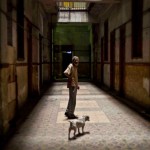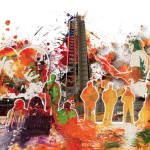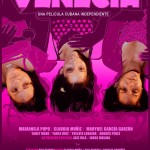
Miami welcomes the young and new Cuban cinema
As much as the Miami International Film Festival (MIFF) purports to be the most important platform for the exhibition and appreciation of Ibero-American cinema in the United States, the event has never been able (or wanted) to give a certain preeminence to the subject of Cuba.
Such an obsession might well be overlooked if Miami — while a culture-generating community — abandoned its claim to be “the capital of the Cuban exile nation” and devoted itself fully to promote in the U.S. the best cinema made in Spain and America, an environment for which movies from the island do not always qualify.
The film festivals, produced and directed by people more or less affected by the same issues as any Cuban on the island or here, make relatively evident their preferences and standards.
The next edition of the MIFF (March 6-15), which will show 125 films, 12 U.S. premieres and 14 world premieres, will pay tribute to four young and talented creators from the island, as “an act of respect to the struggles, promises, importance and collective profiles of the independent Cuban filmmaker,” according to the event’s official statement.
The section of the homage devoted to our compatriots is fine, except that the Argentine and Brazilian, Spanish and Chilean independent filmmakers also struggle, are promising, and form collective profiles that the Festival is not all that interested in.
Anyway, let’s assume that obsessions are positive and let us celebrate the fact that four young Cuban filmmakers will be honored in the same section of the Festival that earlier paid tribute to celebrities like Carlos Saura, Andrzej Wajda and Liv Ullmann, among others.
The homage to the young Cubans will begin Sunday 8 March at 7 p.m. at the Olympia Theater in Gusman Center with a showing of “La Obra del Siglo,” the second fiction feature produced by Carlos Machado Quintela, author of the beautiful and contemplative “La Piscina,” also shown and rewarded at the Miami Festival.
In his first film, dealing with a holiday at a public swimming pool, Machado Quintela created quite a lot of controversy among the critics because of his indirect narration and apparent lack of dramatization, two elements that are foreign to the traditional discourse of classic Cuban cinema.
His second feature film was the largest question mark in the young Cuban’s brief résumé. Now the question has been answered.
Given its world premiere at the Rotterdam Festival and praised as one of the best films in that important event, “La Obra del Siglo” is totally unknown in Cuba. It was a co-production by Cuba, Argentina, Germany and Switzerland, though the plot, locations and cast were wholly Cuban.
It was filmed mostly in black-and-white, with a strong component of documentary film (both contemporary and archival) and certain details of Caribbean surrealism, with a wink and a nod to the classic film “De Cierta Manera.”
The cast consists of three men, three generations who coexist or survive under the same roof in a modest apartment in Juraguá, Cienfuegos, surrounded by the remnants (material, spiritual, utopic) of what was going to be an electronuclear power plant that would raise Cuba to the skies of developed socialism.
In the role of the despotic and skeptical patriarch, Mario Balmaseda delivers an outsized, unmatched performance that confirms his status as one of the best Cuban actors of all time.
His son and his grandson are played with notable solvency by the always honest Mario Guerra, in one of his most broken and moving characters, and Leonardo Gascón, a natural actor who, without any experience in the medium, gives life, muscle and crude authenticity to the youngest member of family, puffed up by testosterone but starving for hope.
However, this is not just a movie about lost utopias and the falsehood of the big stories imposed by modernity. Grandfather, father and son lack hope perhaps because they lost it at the time when the century’s greatest project was being built in Cienfuegos.
This is an extraordinary movie, suggestive, full of signs, tonal changes and suggestions for the knowledgeable and the neophytes. It dares to address the saddest solitude, which is the solitude in a crowd, the solitude of certain beautiful ideas, the solitude of a country, a city, three men, ruins, the dead.
Let’s see in people in Miami capture its profound polysemy, beyond the evidences and nonconformities that they usually applaud in the youngest generation of Cuban cinema.
Also selected for the homage were producer Claudia Calviño, who will introduce the documentary “Hotel Nueva Isla,” and the award-winning Marcel Beltrán, who will show a retrospective of his oeuvre in a documentary, as well as his fiction shorts “Alice” and “La Nube,” and a rough cut of his feature film “El Desaparecido de Kafka,” about the life, work and affinities of the renowned photographer Chinolope.
Director Jessica Rodríguez will be in Miami to show excerpts from her first fiction feature “Espejuelos Oscuros,” about which we published an interview in Progreso Semanal.
“Hotel Nueva Isla” is co-directed by Irene Gutiérrez and Javier Labrador, who deserves credit for the splendid photography of this documentary which represents the sum total of observation serving as a thrilling testimony.
“Hotel Nueva Isla” delves into the private daily life of an old man who lives in the ruins of what once was an ordinary hotel.
“Hotel Nueva Isla” takes the dirty verismo of “Suite Habana” to an extreme and strips it of all transcendence. You see poverty, drop by drop, expressed in a blunt machete, the rain leaking everywhere, and the most languid and sad dog ever, shuffling past peeling walls on which someone wrote the lyrics of famous boleros.
Still, the man can light fires and look to the skies, something he never stops doing.
As in his previous and much-celebrated documentaries “Parihuela” (2009), “Cisne Cuello Negro, Cuello Blanco” (2010); “Cuerda al Aire” (2011), “Memoria del Abuelo” (2012) and “Digna Guerra” (2013), in his fiction short “La Nube” and the documentary “El Desaparecido de Kafka,” Marcel Beltrán moves close to people who are both ordinary and exceptional, amid defining moments when these human beings consecrate themselves as such, despite shipwrecks, defeats or near catastrophes.
“La Nube” pauses to comment, in inspired and emphatic bursts, on the meaning of an old man’s death to his wife and family, seen in expectancy and bewilderment but also in the understanding that life is as inevitable as death. Manuel Porto and Broselianda Hernández contribute eloquence and zest.
In addition to “La Obra del Siglo,” “Espejuelos Oscuros,” “Hotel Nueva Isla” and the Beltrán retrospective, the following documentaries will be shown in Miami: “Playing Lecuona,” a Spanish-Colombian co-production directed by Pavel Giroud and Juan Manuel Villar; “13 Million Voices” (U.S.), done by Cuban-American siblings Janelle and Chris Gueits about the 2009 Concert for Peace organized by Juanes on the Plaza de la Revolución, and “Esto Es lo que Hay” (France), by Lea Rinaldi, about the rap duo Los Aldeanos.
Shown outside the competition will be “Venecia” (Cuba-Colombia) by Enrique Álvarez, and “Todos Se Van,” by Colombian Sergio Cabrera, inspired in the homonymous novel by Cuban writer Wendy Guerra.
The world premiere of “Venecia” came in the section of the Contemporary World Cinema devoted by the Toronto Festival to “the most provocative and important voices of world cinema.”
In terms of the genre, this film represents the antipode of “La Obra del Siglo,” because it deals only with one day in the lives of three young women, their desires and frustrations and the way in which they build ties of complicity and go partying in an adventure that allows them to reveal their dark sides, the sides they cannot reveal even to their best friends.
The Hollywood Reporter says in its review of “Venecia” that it is “a singular independent Cuban film that portrays, with tenderness and grace, friendship between women.”
Made on independent terms, a phenomenon still strange in the context of Cuban cinema, “Venecia” presents a bare and unusual hardness in the movies coming from the island. The all-female cast improvised most of the dialogue, giving the film an appreciable realism.
More important is the thickness and depth of the feminine environment created by the director, who approached the themes from a tender understanding capable of transcending “any limit or prejudice.”
The Miami Festival is telling us about the existence of a new Cuban cinema. New in terms of thematic treatment or to the way it is executed and finds support and diffusion. New, above all, in terms of the differences between dialogue and reality, beyond the extremes between applause and diatribe.
Progreso Semanal/ Weekly authorizes the total or partial reproduction of the articles by our journalists, so long as source and author are identified.














